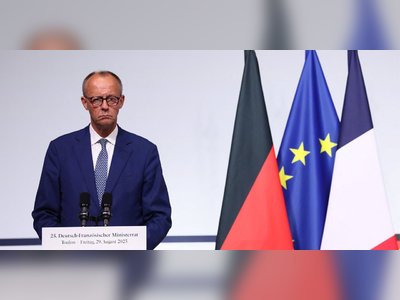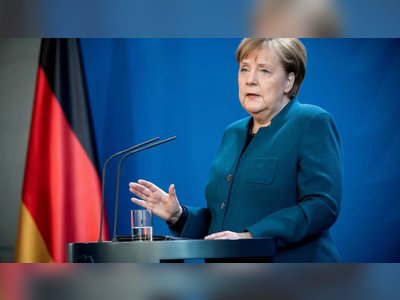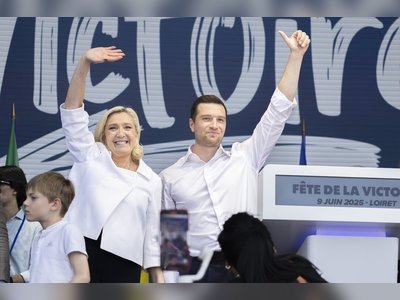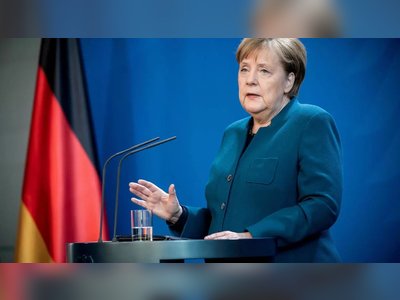
Political Turmoil in Berlin: Analyzing Current Conflicts and Power Dynamics
A look into the evolving political landscape with insights on party unity, election aftermath, and diplomatic appointments.
Amidst ongoing coalition negotiations and proposed amendments to the German Constitution, tensions within Berlin's political sphere have intensified.
The leadership of Friedrich Merz, head of the Christian Democratic Union (CDU), is under scrutiny as he seeks to unify the party following a period of internal divisions.
These challenges draw parallels to the latter years of Angela Merkel's chancellorship, raising concerns about Merz's ability to maintain cohesion within the party.
In the Social Democratic Party (SPD), internal maneuvers are also a focal point.
Following recent electoral setbacks, co-chair Saskia Esken is reportedly positioning herself for a ministerial role, indicating a strategic response to the party's challenges.
Meanwhile, Lars Klingbeil is navigating his own strategy within the party's leadership, reflecting a complex power dynamic amid disappointment.
The situation surrounding Foreign Minister Annalena Baerbock has also gained attention.
Questions have arisen regarding her pursuit of a position at the United Nations, alongside concerns that her actions may be affecting the ambitions of other high-ranking female diplomats.
This situation has sparked a controversial debate within Germany's foreign policy framework.
Political analysts are dissecting the implications of these conflicts, particularly regarding party dynamics and their broader effects on German governance.
In response to these developments, various media outlets and platforms are providing insights into the unfolding issues.
The Berlin Playbook, for instance, produced as a podcast, aims to keep audiences informed about these matters, offering daily updates on the intricacies of Berlin's political climate.
Additionally, the Berlin Playbook newsletter summarizes key political topics, ensuring that stakeholders remain engaged with the current affairs of the German capital.
The leadership of Friedrich Merz, head of the Christian Democratic Union (CDU), is under scrutiny as he seeks to unify the party following a period of internal divisions.
These challenges draw parallels to the latter years of Angela Merkel's chancellorship, raising concerns about Merz's ability to maintain cohesion within the party.
In the Social Democratic Party (SPD), internal maneuvers are also a focal point.
Following recent electoral setbacks, co-chair Saskia Esken is reportedly positioning herself for a ministerial role, indicating a strategic response to the party's challenges.
Meanwhile, Lars Klingbeil is navigating his own strategy within the party's leadership, reflecting a complex power dynamic amid disappointment.
The situation surrounding Foreign Minister Annalena Baerbock has also gained attention.
Questions have arisen regarding her pursuit of a position at the United Nations, alongside concerns that her actions may be affecting the ambitions of other high-ranking female diplomats.
This situation has sparked a controversial debate within Germany's foreign policy framework.
Political analysts are dissecting the implications of these conflicts, particularly regarding party dynamics and their broader effects on German governance.
In response to these developments, various media outlets and platforms are providing insights into the unfolding issues.
The Berlin Playbook, for instance, produced as a podcast, aims to keep audiences informed about these matters, offering daily updates on the intricacies of Berlin's political climate.
Additionally, the Berlin Playbook newsletter summarizes key political topics, ensuring that stakeholders remain engaged with the current affairs of the German capital.
AI Disclaimer: An advanced artificial intelligence (AI) system generated the content of this page on its own. This innovative technology conducts extensive research from a variety of reliable sources, performs rigorous fact-checking and verification, cleans up and balances biased or manipulated content, and presents a minimal factual summary that is just enough yet essential for you to function as an informed and educated citizen. Please keep in mind, however, that this system is an evolving technology, and as a result, the article may contain accidental inaccuracies or errors. We urge you to help us improve our site by reporting any inaccuracies you find using the "Contact Us" link at the bottom of this page. Your helpful feedback helps us improve our system and deliver more precise content. When you find an article of interest here, please look for the full and extensive coverage of this topic in traditional news sources, as they are written by professional journalists that we try to support, not replace. We appreciate your understanding and assistance.











